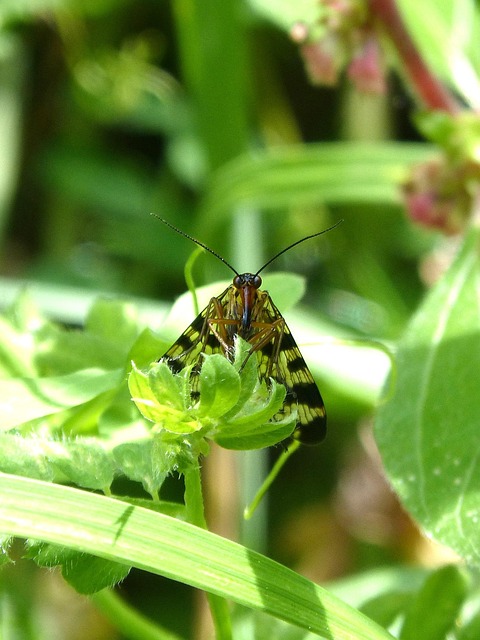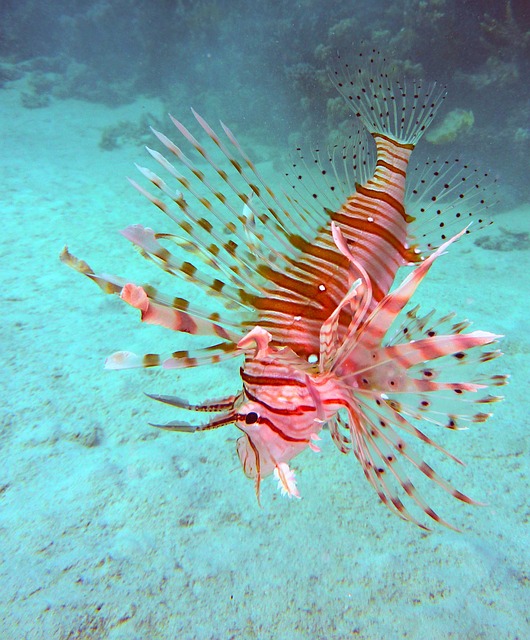Eco-Friendly Scorpion Solutions: Expert Control for Residential & Commercial Spaces
Scorpions prefer dark, secluded areas and nocturnal activity, making professional scorpion removal c…….
Scorpion Control and Removal: A Comprehensive Overview
Introduction
Scorpions are arachnids known for their venomous stingers, capable of inflicting painful and sometimes hazardous stings to humans. Their presence can pose significant risks to health, safety, and property integrity. Effective scorpion control and removal are critical for maintaining a safe environment, particularly in regions where scorpions are prevalent. This article delves into the multifaceted world of scorpion management, exploring its historical context, global impact, economic considerations, technological advancements, policy frameworks, challenges, case studies, and future prospects. Readers will gain a comprehensive understanding of the measures taken to control and remove these creatures from residential and commercial settings.
Understanding Scorpion Control and Removal
Scorpion control and removal encompass a range of practices aimed at preventing scorpion infestations and safely eliminating them when present. These practices include environmental management, biological control, chemical treatments, and physical removal methods. The core components of effective scorpion control involve understanding the biology and behavior of scorpions, identifying conducive conditions for their presence, and implementing targeted strategies to manage populations.
Historically, scorpion control has been a part of human endeavor for millennia, with early methods relying on simple physical removal or the use of fire. Over time, more sophisticated techniques have emerged, paralleling advancements in science and technology. Today, integrated pest management (IPM) is often the preferred approach, combining multiple strategies to ensure long-term control.
Global Impact and Trends
Scorpions are found on every continent except Antarctica, with the highest concentrations of venomous species in arid regions such as the Middle East, North Africa, Central and South America, and parts of India and China. The global impact of scorpion infestations is significant, affecting public health, agriculture, and infrastructure.
Key trends shaping the trajectory of scorpion control include increased urbanization, climate change, and international trade, which can inadvertently introduce new species to regions where they were previously absent. The economic costs associated with scorpion infestations are substantial, encompassing medical care, property damage, and lost productivity.
Economic Considerations
The economic aspects of scorpion control and removal are multifaceted. Market dynamics for pest control services are influenced by factors such as the prevalence of scorpions in a region, the severity of their impact on human health and property, and the availability of effective control methods. Investment patterns reflect a growing emphasis on research and development of new technologies and treatments, as well as the expansion of pest control services into underserved markets.
Scorpion control is an integral part of economic systems in regions where scorpions are a significant concern. It contributes to public health by reducing the risk of envenomation, preserves agricultural productivity by protecting crops and livestock, and supports tourism by ensuring safe environments for visitors.
Technological Advancements
Technological advancements have significantly impacted scorpion control and removal. Innovations such as non-toxic baits, traps that use pheromones to attract scorpions, advanced monitoring equipment, and sophisticated chemical treatments have improved the efficacy and specificity of control measures.
Future potential includes the development of genetically modified organisms (GMOs) for biological control, drone technology for surveillance and treatment application, and artificial intelligence (AI) for predictive modeling of scorpion populations. These advancements promise to make scorpion control more efficient and environmentally friendly.
Policy and Regulation
Policies and regulations governing scorpion control and removal vary by region, reflecting the local prevalence and impact of scorpions. International bodies such as the World Health Organization (WHO) provide guidelines for managing public health risks associated with scorpion infestations. National and local governments establish frameworks for pest control operations, often mandating the use of specific methods or substances.
Regulatory challenges include ensuring that control measures are both effective and safe for humans and the environment. Compliance with these regulations is critical for the legitimacy and sustainability of scorpion control efforts.
Challenges and Criticisms
Scorpion control and removal face several challenges, including resistance to chemical treatments, environmental concerns, and the difficulty of eradicating scorpions completely due to their ecological role and resilience. Critics argue that some control measures may be overly harsh or ineffective, leading to a reliance on harmful chemicals or a false sense of security.
To address these issues, strategies such as integrated pest management (IPM), promoting public awareness and education, and investing in research for more targeted and less disruptive methods are recommended. By combining these approaches, scorpion control can become more effective and sustainable over the long term.
Case Studies
Several case studies illustrate successful applications of scorpion control and removal. In some regions, community-based initiatives have been particularly effective, combining education with targeted interventions. For example, in a rural village in India, a combination of habitat modification and biological controls significantly reduced the scorpion population. Another case study from a remote area in Australia demonstrated the successful use of advanced trapping methods to control a local scorpion outbreak.
Future Prospects
The future of scorpion control and removal is promising, with ongoing research and development yielding new and improved methods for managing these creatures. Advances in technology, a better understanding of scorpion ecology, and the implementation of effective policies and regulations will all contribute to more sustainable and successful control measures.
Public education and awareness remain crucial components of any comprehensive strategy. By empowering communities with knowledge and tools, we can foster a collaborative approach to managing scorpions, ensuring that both human health and the environment are protected for generations to come.
Conclusion
Scorpion control and removal are complex challenges that require a multifaceted approach combining science, technology, policy, and community engagement. By understanding the biology of scorpions and the impact they have on society, we can develop targeted strategies to manage their populations effectively and sustainably. The ongoing efforts in this field promise to enhance public health, protect agriculture, and preserve natural habitats while safeguarding against the economic and social consequences of scorpion infestations.

Scorpions prefer dark, secluded areas and nocturnal activity, making professional scorpion removal c…….

Scorpion infestations pose significant threats to homes and businesses, prompting the need for profe…….

Scorpion infestations pose significant risks, with various species requiring distinct control method…….

Understanding scorpion behavior is crucial for effective control. Professional scorpion control serv…….

Understanding scorpion behaviors leads to effective control through targeted strategies and advanced…….

Professional scorpion control services offer the ultimate solution for stubborn infestations in hard…….

Scorpions thrive in warm, dry environments, making them a common pest in homes and businesses. Profe…….

Scorpion infestations require specialized, eco-conscious control methods. Professional services offe…….

Scorpions prefer dry, warm environments and hide in cracks. Professional scorpion control services u…….

Professional scorpion control services offer effective, eco-friendly solutions for both residential…….